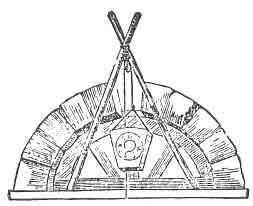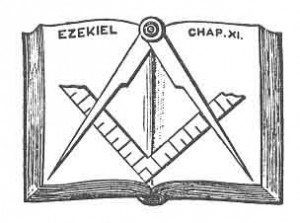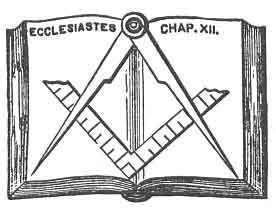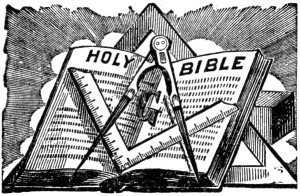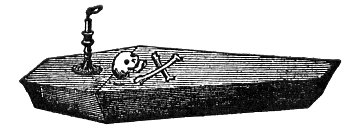p. 108
survive us, and be living forces when we are in our graves; and not merely that our names shall be remembered; but rather that our works shall be read, our acts spoken of, our names recollected and. mentioned when we are dead, as evidences that those influences live and rule, sway and control some portion of mankind and of the world,–this is the aspiration of the human soul. “We see then how far the monuments of genius and learning are more durable than monuments of power or of the hands. For have not the verses of Homer continued twenty-five hundred years or more, without the loss of a syllable or letter, during which time infinite palaces, temples, castles, cities, have decayed and been demolished? It is not possible to have the true pictures or statues of Cyrus, Alexander, Cæsar, no, nor of the Kings or great personages of much later years; for the originals cannot last, and the copies cannot but lose of the life and truth. But the images of men’s genius and knowledge remain in books, exempted from the wrong of time, and capable of perpetual renovation. Neither are they fitly to be called images, because they generate still, and cast their seeds in the minds of others, provoking and causing infinite actions and opinions in succeeding ages; so that if the invention of the ship was thought so noble, which carrieth riches and commodities from place to place, and consociateth the most remote regions in participation of their fruits, how much more are letters to be magnified, which, as ships, pass through the vast seas of time, and make ages so distant to participate of the wisdom, illumination, and inventions, the one of the other.”
To learn, to attain knowledge, to be wise, is a necessity for every truly noble soul; to teach, to communicate that knowledge, to share that wisdom with others, and not churlishly to lock up his exchequer, and place a sentinel at the door to drive away the needy, is equally an impulse of a noble nature, and the worthiest work of man.
“There was a little city,” says the Preacher, the son of David, “and few men within it; and there came a great King against it and besieged it, and built great bulwarks against it. Now there was found in it a poor wise man, and he by his wisdom delivered the city; yet no man remembered that same poor man. Then, said I, wisdom is better than strength: nevertheless, the poor man’s wisdom is despised, and his words are not heard.” If it should chance to you, my brother, to do mankind good service, and be
p. 109
rewarded with indifference and forgetfulness only, still be not discouraged, but remember the further advice of the wise King. “In the morning sow the seed, and in the evening withhold not thy hand; for thou knowest not which shall prosper, this or that, or whether both shall be alike good.” Sow you the seed, whoever reaps. Learn, that you may be enabled to do good; and do so because it is right, finding in the act itself ample. reward and recompense.
To attain the truth, and to serve our fellows, our country, and mankind–this is the noblest destiny of man. Hereafter and all your life it is to be your object. If you desire to ascend to that destiny, advance! If you have other and less noble objects, and are contented with a lower flight, halt here! let others scale the heights, and Masonry fulfill her mission.
If you will advance, gird up your loins for the struggle! for the way is long and toilsome. Pleasure, all smiles, will beckon you on the one hand, and Indolence will invite you to sleep among the flowers, upon the other. Prepare, by secrecy, obedience, and fidelity, to resist the allurements of both!
Secrecy is indispensable in a Mason of whatever Degree. It is the first and almost the only lesson taught to the Entered Apprentice. The obligations which we have each assumed toward every Mason that lives, requiring of us the performance of the most serious and onerous duties toward those personally unknown to us until they demand our aid,–duties that must be performed, even at the risk of life, or our solemn oaths be broken and violated, and we be branded as false Masons and faithless men, teach us how profound a folly it would he to betray our secrets to those who, bound to us by no tie of common obligation, might, by obtaining them, call on us in their extremity, when the urgency of the occasion should allow us no time for inquiry, and the peremptory mandate of our obligation compel us to do a brother’s duty to a base impostor.

Moe is the founder of GnosticWarrior.com. He is a father, husband, author, martial arts black belt, and an expert in Gnosticism, the occult, and esotericism.

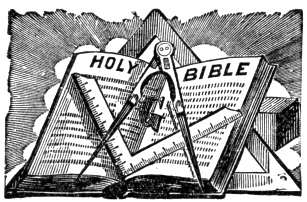
![How the Abbot Ceolfrid sent master-builders to the King of the Picts to build a church, and with them an epistle concerning the catholic Easter and the Tonsure [710 A.D.] | Book 5 | Chapter 20 How the Abbot Ceolfrid sent master-builders to the King of the Picts to build a church, and with them an epistle concerning the catholic Easter and the Tonsure [710 A.D.] | Book 5 | Chapter 20](https://www.gnosticwarrior.com/wp-content/plugins/contextual-related-posts/default.png)
